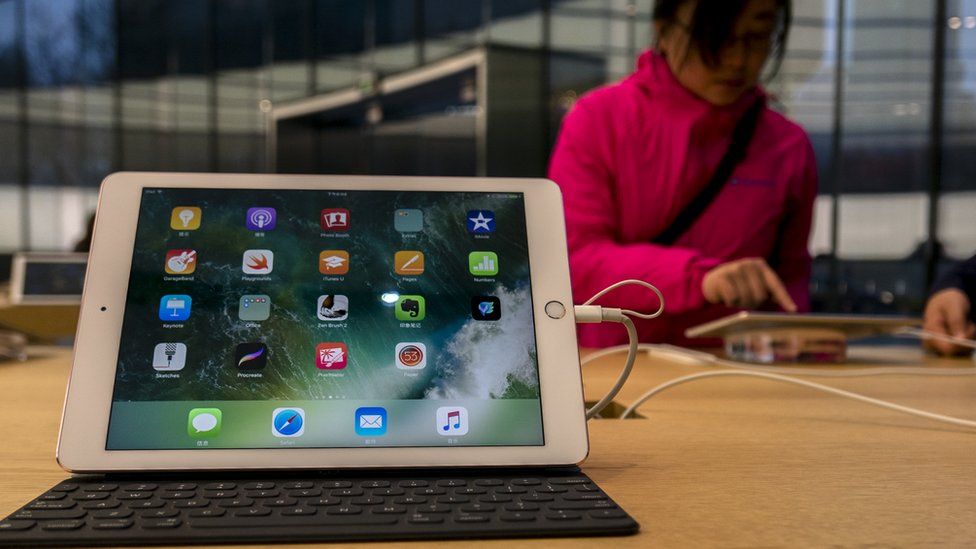Apple Gambling
Multiple providers have developed interfaces for mobile use, including iPhone gambling apps. These applications support legal gambling entertainment like online casino, poker and sports betting programs, each of which having more specific subcategories like table games, live betting. Over 100 incredibly fun games, ad free. From puzzle and adventure games to sports, racing, and multiplayer action games, everyone can count on finding something to love. Enjoy all games with no. Gambling and slot machines have historically, and sensibly, been deemed bad for society and often made illegal. Why Apple has decided to let them loose on its walled garden is beyond me. They’re gambling.

App Store Review Guideline updates now available
February 1, 2021
The App Store is a safe and trusted place for customers to discover and download apps, and a great opportunity for developers. The App Store Review Guideline changes and clarifications support new features in upcoming OS releases, better protect customers, and help your apps go through the review process as smoothly as possible. Review the updates below. Please note that all new apps and app updates submitted to the App Store must follow the revised guideline 5.1.2(i) by early spring 2021.

- 1.4.3: Clarified the prohibition of promoting certain substances: “Apps that encourage consumption of tobacco and vape products, illegal drugs, or excessive amounts of alcohol are not permitted on the App Store. Apps that encourage minors to consume any of these substances will be rejected. Facilitating the sale of controlled substances (except for licensed pharmacies), marijuana, or tobacco is not allowed.”
- 2.3: Clarified the information that must accurately reflect the app’s core experience: “Customers should know what they’re getting when they download or buy your app, so make sure all your app metadata, including privacy information, your app description, screenshots, and previews accurately reflect the app’s core experience and remember to keep them up-to-date with new versions.”
- 2.3.7: Clarified what metadata shouldn’t include: “Choose a unique app name, assign keywords that accurately describe your app, and don’t try to pack any of your metadata with trademarked terms, popular app names, pricing information, or other irrelevant phrases just to game the system. App names must be limited to 30 characters. Metadata such as app names, subtitles, screenshots, and previews should not include prices, terms, or descriptions that are not specific to the metadata type. App subtitles are a great way to provide additional context for your app; they must follow our standard metadata rules and should not include inappropriate content, reference other apps, or make unverifiable product claims. Apple may modify inappropriate keywords at any time or take other appropriate steps to prevent abuse.”
- 2.4.5(viii): Removed Rosetta as an example: “Apps should run on the currently shipping OS and may not use deprecated or optionally installed technologies (e.g., Java).”
- 3.1.1: Clarified that these items must be sold through in-app purchase: “Gift cards, certificates, vouchers, and coupons which can be redeemed for digital goods or services can only be sold in your app using in-app purchase.”
- 3.1.1: Clarified how apps can enable customers to “tip” developers: “Apps may use in-app purchase currencies to enable customers to “tip” the developer or digital content providers in the app.”
- 3.1.1: Deleted: “Remember to assign the correct purchasability type or your app will be rejected.”
- 3.1.2(a): Clarified how certain games can offer a subscription across third-party apps and services: “Games offered in a streaming game service subscription may offer a single subscription that is shared across third-party apps and services; however, they must be downloaded directly from the App Store, must be designed to avoid duplicate payment by a subscriber, and should not disadvantage non-subscriber customers.”
- 3.1.3(c): Clarified what enterprise users can access and what purchase methods they can use: “Enterprise Services: If your app is only sold directly by you to organizations or groups for their employees or students (for example professional databases and classroom management tools), you may allow enterprise users to access previously-purchased content or subscriptions. Consumer, single user, or family sales must use in-app purchase.”
- 3.1.3(d): Changed terminology from “person-to-person experiences” to “person-to-person services” to clarify that services provided by one individual to another are in scope: “If your app enables the purchase of realtime person-to-person services between two individuals (for example tutoring students, medical consultations, real estate tours, or fitness training), you may use purchase methods other than in-app purchase to collect those payments. One-to-few and one-to-many realtime services must use in-app purchase.”
- 3.2.1(viii): Clarified who can create apps for these services. Removed option to use a public API: “Apps used for financial trading, investing, or money management should come from the financial institution performing such services.”
- 3.2.2(ix): Removed duplicative section regarding forcing users to perform actions, which is fully covered by 3.2.2(vi); renumbered former 3.2.2(x).
- 4.2.3(iii): Clarified the information that certain apps need to disclose: “If your app needs to download additional resources in order to function on initial launch, disclose the size of the download and prompt users before doing so.”
- 5.1.1(ix): Clarified that gambling is a heavily-regulated field in scope: “Apps that provide services in highly-regulated fields (such as banking and financial services, healthcare, gambling and air travel) or that require sensitive user information should be submitted by a legal entity that provides the services, and not by an individual developer.”
- 5.1.2(i): Added: “You must receive explicit permission from users via the App Tracking Transparency APIs to track their activity. Learn more about tracking.”
- After You Submit: Reordered the paragraph describing appeals for clarity.
I personally don’t like to gamble. I don’t like slot machines or roulette. The decisions you make are too inconsequential.
Have you ever looked at the payout odds for roulette? No matter how you bet your percentage return is always the same. On average you’re going to lose 5 cents for every dollar you bet. It’s true that there are a lot of options in roulette. A lot of choices to make. But none of them have any impact on the game. You’re always going to lose about 5 cents for every dollar you bet.
Slot machines are the same. You can decide how much you want to bet and you can decide how many “lines” you want to bet but all your doing is deciding how quickly or slowly you lose your money. Even then, casinos tend to doctor the odds so that lower-cost slots have a worse payout in an attempt to even out the money-lost-per-hour of all slot machines.
So in slots, roulette, and other casino games it’s impossible to make a choice that impacts the game.

If you are a game author like me, shit like this makes you really curious. It’s hard to make a good video game, lots and lots of us have tried and failed. But here is a simple set of games where players literally make no decisions yet sit enraptured by them. The world wide gambling market is worth over 300 billion dollars while the videogame market is worth less than 70. Amazingly, the majority of that 300 billion dollars comes from people playing games where their decisions have no impact on the game.
But every pillar of game design that I respect is fundamentally rooted in player choice. So why the hell are all these people deciding to give money to casinos?
So far my only answer has been cash payouts. Yeah, slot machines are pretty simple skinner boxes. But even in a skinner box you need to give the pigeon something they care about. If you awarded the pigeon “points” for hitting a button then it would lose interest pretty fast. The cost of hitting the bar dwarfs the potential gain of the payout.
So it has been with slot machines. Downloadable slot machine games have been around for as long as games. They never really went anywhere because with no cash reward and no interesting choices the skinner box collapses. Until now. Ladies and gentlemen I would like to present to you, Slotomania:
Apple Gaming
Slotomania and, ridiculously, Slotomania HD are both on the iPad top grossing apps chart. That means people are dropping a lot of money into a slot machine with no payout. The skinner box has no clothes but it doesn’t seem to matter.
How did Slotomania manage to turn the Skinner Box back on? Well check out the bar at the top of that Screen shot. Can you guess what that is?
That’s an xp bar. You can level this slot machine. When you level you get access to more games (well, the same game reskinned) and you raise your minimum bet. You gain xp purely by spending credits. The more credits you gamble the more you level. Of course you run out of credits about two and a half games in so the only way to unlock more is by paying real money.
I also think they trade off the associations that casino gamblers already have with slot machines. By mimicking casino slots they can hijack the Pavlovian response people have already built up around traditional slots.
Apple Gaming Controller
This is genius, evil, and Slotomania has been making money off of it on iPad and facebook for two years. They had been refining their strategy and becoming more and more profitable until, shock, last year Ceaser’s bought them and they really started to make money.
Apple Gaming Laptop

It’s these kind of brain hacks that make me really uncomfortable. Ceaser’s and Slotomania basically earn their money from failures in the human mind. They can compel us to play their shitty games and they can compel us to pay them money to do it. They don’t offer us a system to master or anything you might define as “fun” in return. They just reach into our brain and make us dance to their tune.

Gambling and slot machines have historically, and sensibly, been deemed bad for society and often made illegal. Why Apple has decided to let them loose on its walled garden is beyond me. They’re gambling that the government isn’t going to step in and try to put things in order. If they lose that bet then the laws will be broad and ham fisted and we’re all going to wish they’d just stayed the fuck out of the casino.